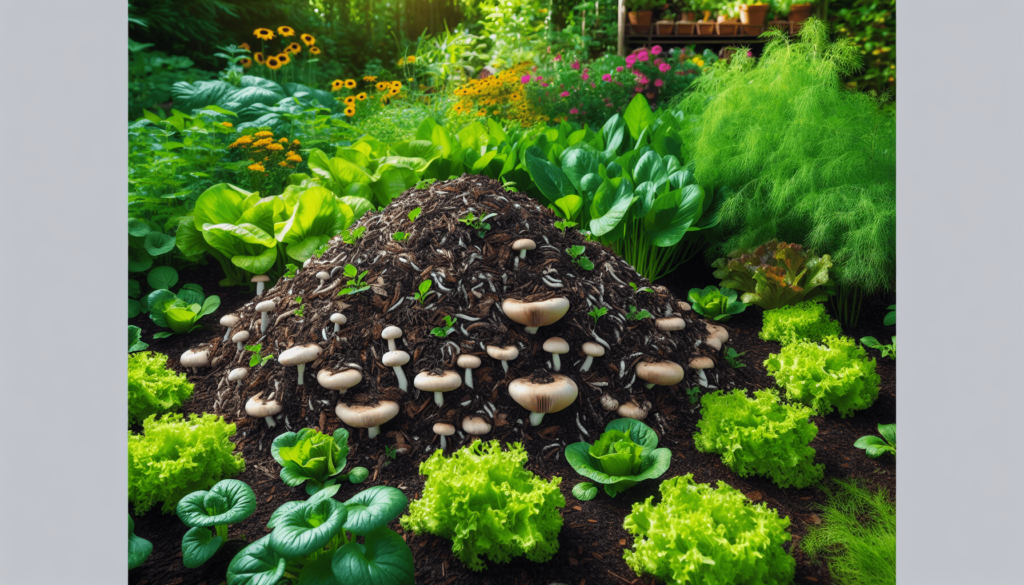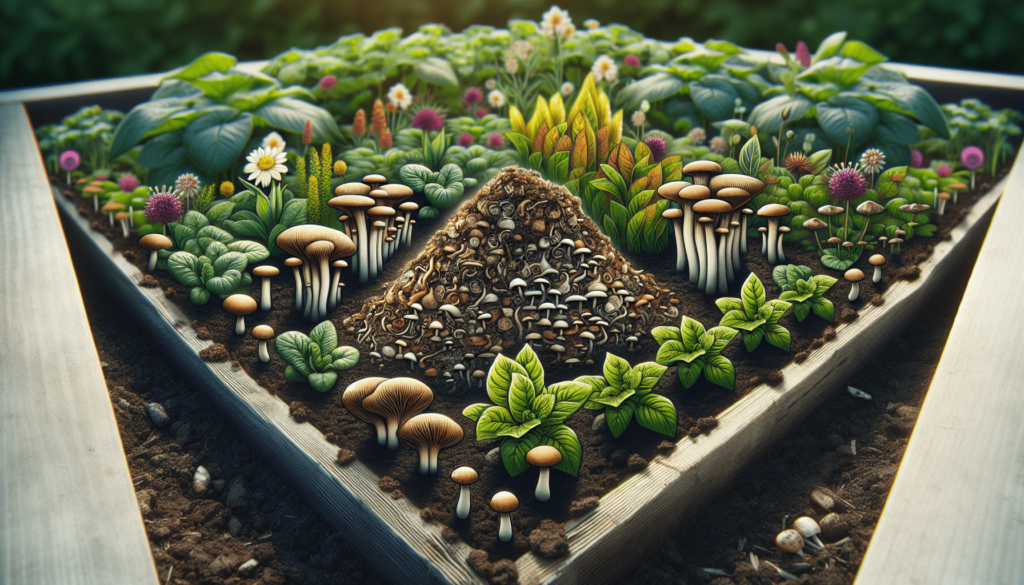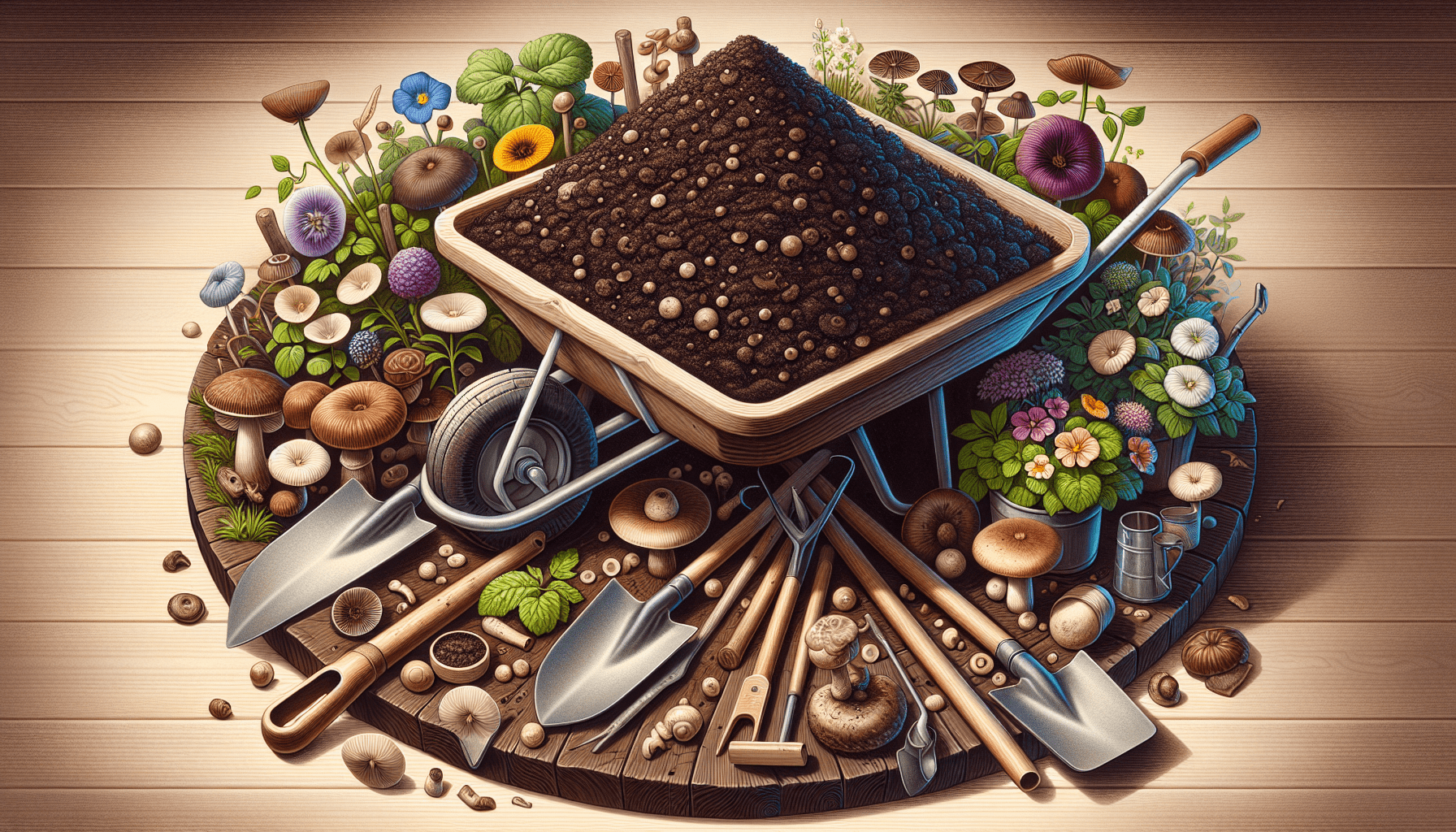Does Mushroom Compost Reduce The Need For Synthetic Fertilizers?
Have you ever wondered if using mushroom compost in your garden could help reduce your reliance on synthetic fertilizers? In this article, we will explore the benefits of mushroom compost and its potential to lessen the need for synthetic fertilizers in your gardening practices.

What is Mushroom Compost?
Mushroom compost, also known as mushroom soil, is a type of organic material that is created from the leftover byproducts of mushroom farming. It consists of a blend of materials such as straw, hay, poultry manure, gypsum, and other agricultural wastes that have been used to grow mushrooms.
Mushroom compost is rich in essential nutrients like nitrogen, phosphorus, and potassium, making it a valuable soil conditioner and fertilizer for plants. This organic material is environmentally friendly and sustainable, making it an attractive option for eco-conscious gardeners.
Learn about mushroom composting
How Does Mushroom Compost Help Improve Soil Health?
One of the main benefits of using mushroom compost in gardening is its ability to improve soil health. When added to soil, mushroom compost helps to increase organic matter content, enhance soil structure, and promote beneficial microbial activity. This, in turn, creates a healthy environment for plants to grow and thrive.
The organic matter in mushroom compost helps to retain moisture in the soil, reducing the need for frequent watering. Additionally, the nutrients present in mushroom compost are slowly released into the soil, providing a steady supply of essential elements for plant growth. By improving soil health, mushroom compost can help plants become more resilient to environmental stressors and diseases.

Can Mushroom Compost Replace Synthetic Fertilizers?
While mushroom compost is a nutrient-rich soil amendment, it may not entirely replace synthetic fertilizers in all gardening situations. Synthetic fertilizers are specifically formulated to provide plants with precise amounts of nutrients needed for their growth and development.
However, using mushroom compost in conjunction with synthetic fertilizers can help reduce the overall reliance on chemical-based products. By incorporating mushroom compost into your gardening practices, you can improve soil fertility, enhance nutrient uptake by plants, and reduce the risk of nutrient leaching into the environment.
Mushroom Compost vs. Synthetic Fertilizers: A Comparison
Let’s compare mushroom compost and synthetic fertilizers in terms of their impact on soil health, plant growth, and environmental sustainability:
| Criteria | Mushroom Compost | Synthetic Fertilizers |
|---|---|---|
| Soil Health | Improves soil structure and microbial activity | May disrupt soil ecosystems |
| Nutrient Content | Contains a wide range of essential nutrients | Provides specific nutrients for plants |
| Environmental Impact | Sustainable and eco-friendly | May leach harmful chemicals into soil |
As shown in the table above, mushroom compost offers several advantages over synthetic fertilizers when it comes to enhancing soil health, promoting plant growth, and minimizing environmental impact.

How to Use Mushroom Compost in Your Garden
If you’re considering incorporating mushroom compost into your gardening routine, here are some tips to help you get started:
-
Mix into Garden Beds: Spread a layer of mushroom compost over your garden beds and gently mix it into the top few inches of soil. This will help improve soil structure and fertility.
-
Top Dressing for Plants: Use mushroom compost as a top dressing for existing plants by spreading a thin layer around the base of each plant. This will provide a slow-release source of nutrients as the compost breaks down.
-
Compost Tea: Create a nutrient-rich compost tea by steeping mushroom compost in water for a few days. Use this liquid fertilizer to water your plants and provide them with an extra nutrient boost.
-
Mulch Material: Use mushroom compost as a mulch material around plants to help retain soil moisture, suppress weeds, and gradually release nutrients into the soil.
By incorporating mushroom compost into your gardening practices, you can improve soil health, enhance plant growth, and reduce the need for synthetic fertilizers.

The Benefits of Using Mushroom Compost
There are many benefits to using mushroom compost in your garden, including:
-
Organic Matter: Mushroom compost is rich in organic matter, which helps improve soil structure and moisture retention.
-
Nutrient-Rich: Mushroom compost contains essential nutrients like nitrogen, phosphorus, and potassium, which are necessary for plant growth.
-
Microbial Activity: The beneficial microbes present in mushroom compost help break down organic matter and release nutrients for plant uptake.
-
Sustainability: Mushroom compost is a sustainable and eco-friendly soil amendment that helps reduce waste from mushroom farming.
By harnessing the power of mushroom compost, you can create a healthier and more productive garden space for your plants to thrive.

Conclusion
In conclusion, mushroom compost can be a valuable addition to your gardening toolkit, helping to improve soil health, enhance plant growth, and reduce the need for synthetic fertilizers. While it may not entirely replace chemical-based products, using mushroom compost in conjunction with synthetic fertilizers can lead to more sustainable gardening practices.
So, the next time you’re looking for ways to enrich your garden soil and promote healthy plant growth, consider giving mushroom compost a try. Your plants will thank you for it!

